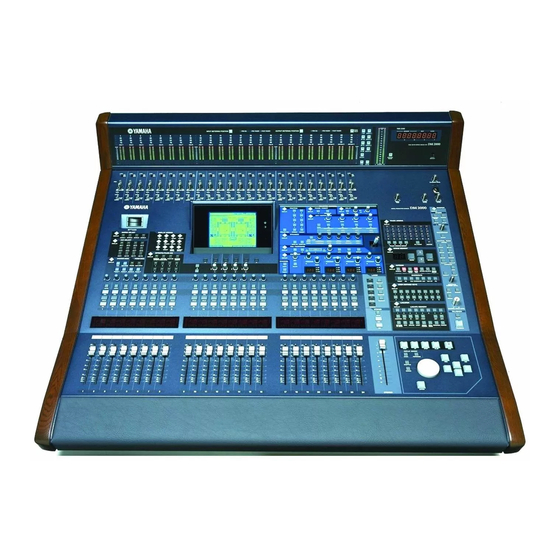
Yamaha DM2000V2 Quick Start Manual
Hide thumbs
Also See for DM2000V2:
- Set up and operation manual (7 pages) ,
- Owner's manual (34 pages) ,
- Short cut list (9 pages)
Table of Contents
Advertisement
Quick Start Guide
This is a "quick start guide" designed for people about to use Yamaha DM2000 for the first time. It is
not a guide to audio mixing and it assumes the reader has experience of analog mixers. It does not
replace the manual; we recommend referring to the manual if further information is required.
402 pages of manual and then the
editor and driver guides. Mmmmm.....
there has got to be a quicker way...
Advertisement
Table of Contents
















Need help?
Do you have a question about the DM2000V2 and is the answer not in the manual?
Questions and answers